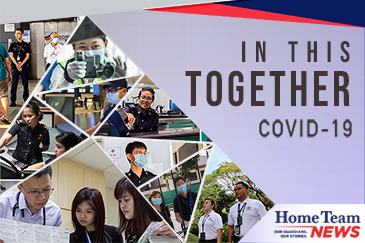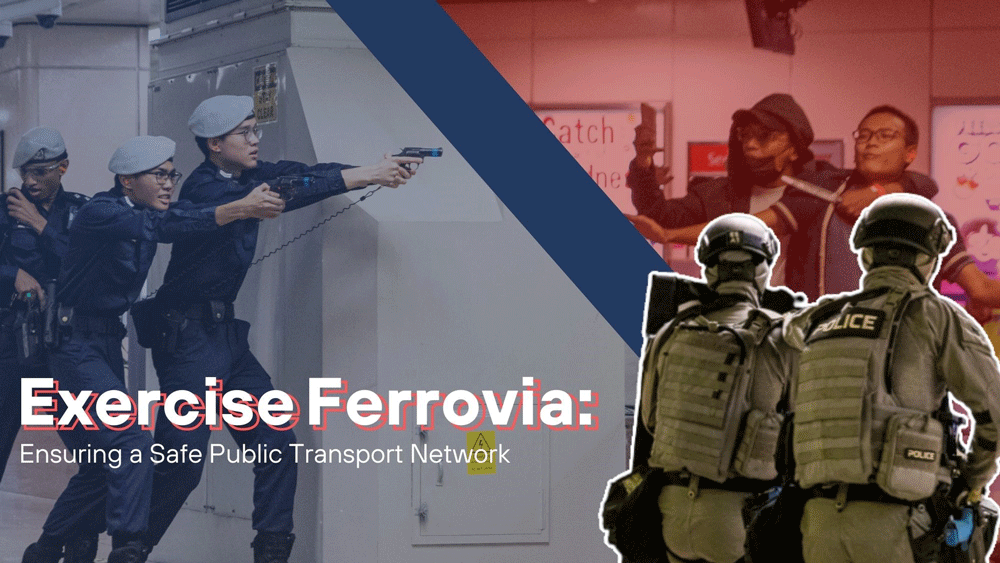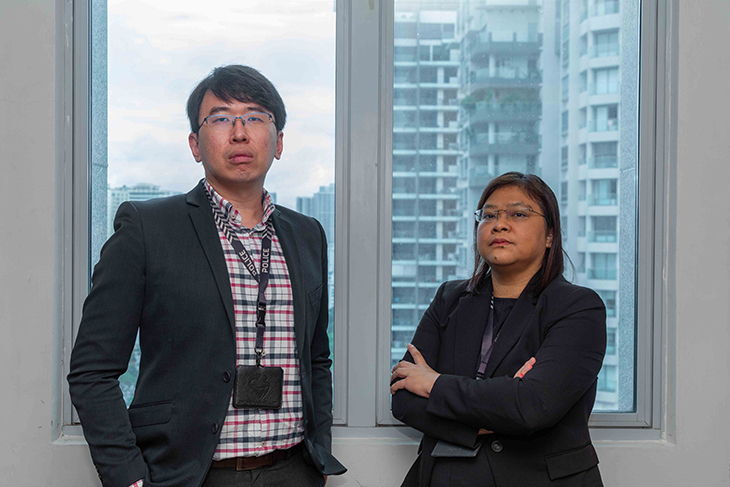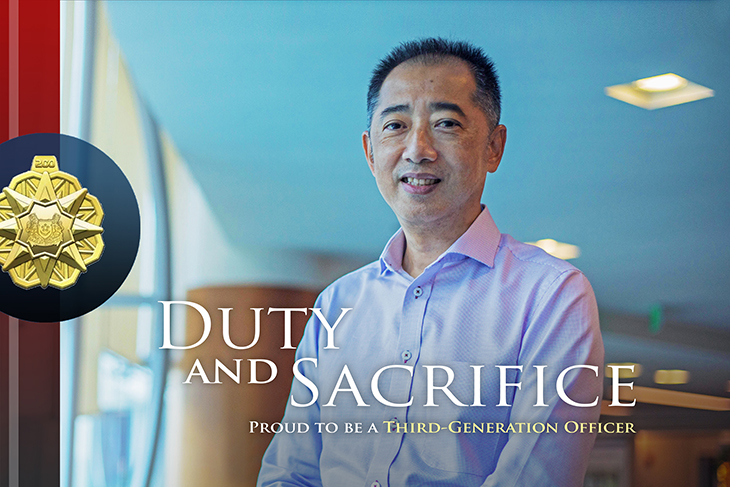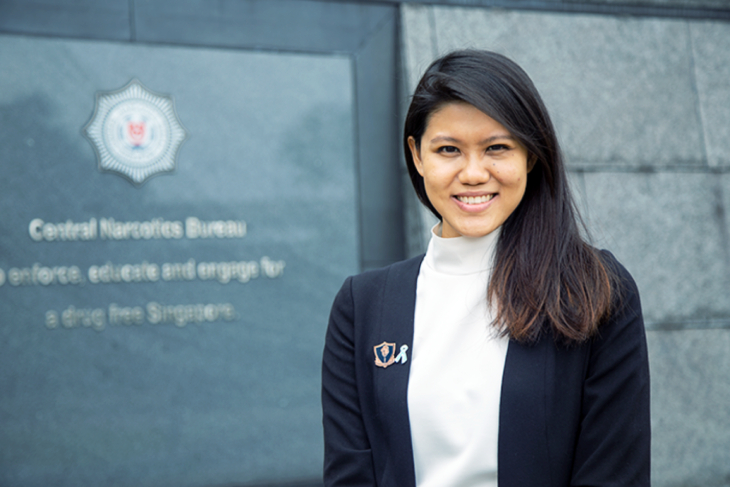
As a Psychologist with the Central Narcotics Bureau’s (CNB)
Psychology Unit, Seah Wang Ling is involved in matters related to organisational support at CNB, including the
training of officers in both functional and soft skills. Wang Ling’s approach to training stems from her
background in Psychology, and she has a keen interest in helping officers contextualise and reflect on how the
skills they pick up can be important to both their work and personal growth. She shares more with us!
How did you become a Home Team Trainer?
It happened organically when my team, the CNB Psychology Unit, took on training roles to better
support the Bureau.
I started training officers in 2015 by conducting a module on how psychological principles can help support our
operations. This made me realise that I had a passion for training. Since then, we’ve expanded our repertoire
of modules to include programmes that cover unique aspects of the work of CNB officers, such as the Community
Supervision Skills course.
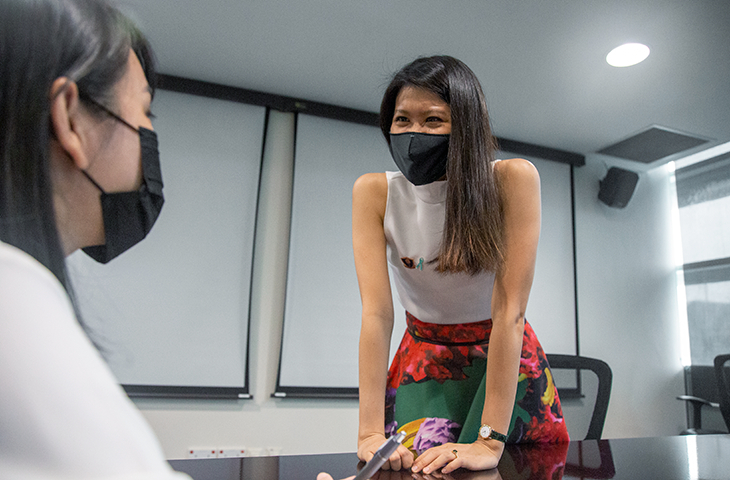
Wang Ling frequently engages in one-on-one conversations with her Trainees because she believes it is important
to cultivate a strong Trainer-Trainee relationship.
What are the qualities of a good Home Team Trainer?
A good Trainer needs to be passionate about the development of Trainees. If we aren’t
driven to teach and share our knowledge, then how can Trainees be compelled to learn? A sense of passion also
ensures that we’re constantly seeking high standards in our training.
I firmly believe that another important quality Trainers should have is authenticity, because this can transform the
classroom environment. When Trainees feel positive energy from us, they become more engaged in their own learning.
This enthusiasm is then reciprocated back to the Trainers, encouraging us to continue our efforts.
Training is very much a two-way process; effective learning can only take place when there’s a commitment from
both Trainers and Trainees.
How have you worked to enhance the learning experience of CNB Trainees?
I firmly believe in the Three R’s and shape my teaching experiences around them: Reflect,
Relevance and Retention.
“Reflect” is about bringing classroom lessons to life by considering their real-world applications and
how they apply to our work, through reflective discussions. This brings us to “Relevance.” By sharing
their personal experiences, Trainees can better understand the relevance of the lessons on their work. This results
in the “Retention” of knowledge, whereby Trainees are able to apply what they’ve learnt, ensuring
that the training is effective.
How have your training methods evolved over the years?
When we first started, our lessons were more lecture-based, but we developed our capabilities
over time to better engage officers through multi-sensorial modes of teaching.
For example, we incorporate role-playing into our lessons to make learning more interactive and fun. I've also
integrated mini-experiments into my training to engage Trainees and demonstrate how concepts can be applied in real
life.
Share a memorable experience from your work as a Trainer.
In 2019, the drug
rehabilitation regime was enhanced to allow repeat drug abusers with no other concurrent offences to
undergo rehabilitation instead of being incarcerated. At the same time, the Misuse of Drugs Act was amended to
extend drug supervision from two years to five years after abusers are released from the Drug Rehabilitation Centre
or prison. The Community Supervision Skills course was thus developed by the CNB Psychology Unit to prepare CNB
officers for the implementation of the five-year Supervision Order.
During a recent training session for the course, I wanted to demonstrate the importance of using positive feedback
to reinforce the right behaviour on the part of supervisees. At the same time, I also wanted to encourage the
Trainees to consider their own strengths as officers.
So I asked each Trainee to share one positive point about a fellow Trainee. This exercise resulted in a really
meaningful moment between the Trainees, as each was better able to appreciate what others saw as their strengths,
and also experience the impact of positive encouragement.
Learning is a journey that all of us embark on together, so why not enjoy the process and learn from one
another’s experiences?
In 2020, I also attended the Upgrading Professionally – Specialist Certificate in Adult Learning and Education
(UP-SCALE) course organised by the Home Team
Academy and the National Institute of Education
International. The three-month course provided a platform for Trainers from across the Home Team to
meet. I appreciated the camaraderie and friendships forged with my fellow Trainers, and one of the most memorable
experiences was an clay art session that gave me the opportunity to reflect on my mission – to nurture
and empower others through a safe and positive learning environment – and affirm my core values as a Trainer
– a love for learning, and learners.
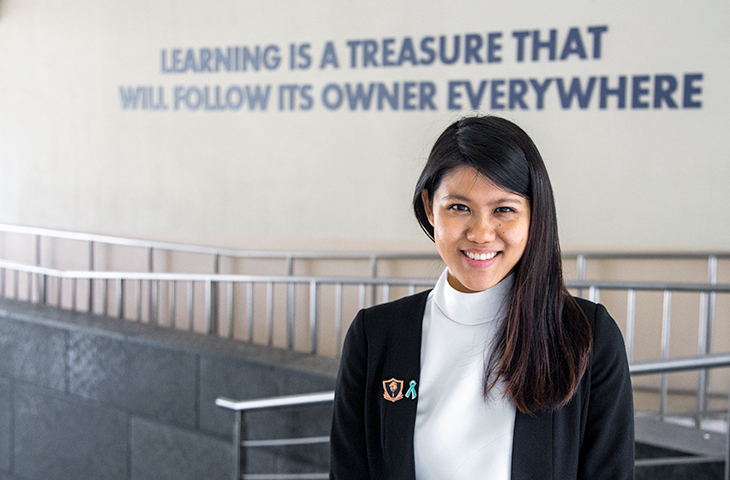
A love for learning, and learners – these are Wang Ling's core values as a Trainer.
So what is it that you enjoy most about being a Trainer?
Training has the power to change mindsets, reinforce our organisational culture and empower
officers to take control of their own development. It’s a privilege to be able to make a difference through my
work.
It’s also heartening to see Trainees share their experiences and ideas in class, and slowly gain confidence in
their own abilities. This can only happen because of the safe, supportive space we’ve created together.
Ultimately, when I see our Trainees practise what I’ve taught them in their daily work, it puts a smile on my
face, and reaffirms my purpose in nurturing CNB officers to create a drug-free Singapore.
Our Trainers, Our Pride: Dedication That Knows No Borders
Our Trainers, Our Pride: Helping Trainees Become a Better Version of Themselves
Home Team Training Excellence (TRaX) Awards
The Home Team TRaX Awards are given out by the Home Team Academy and recognise outstanding
Trainers and Training Units in the Home Team’s Training and Learning Community. At a virtual award ceremony held in December 2020, nine Trainers (individual awards) and five Training Units (team awards) received honours for their commitment to innovation in learning.




